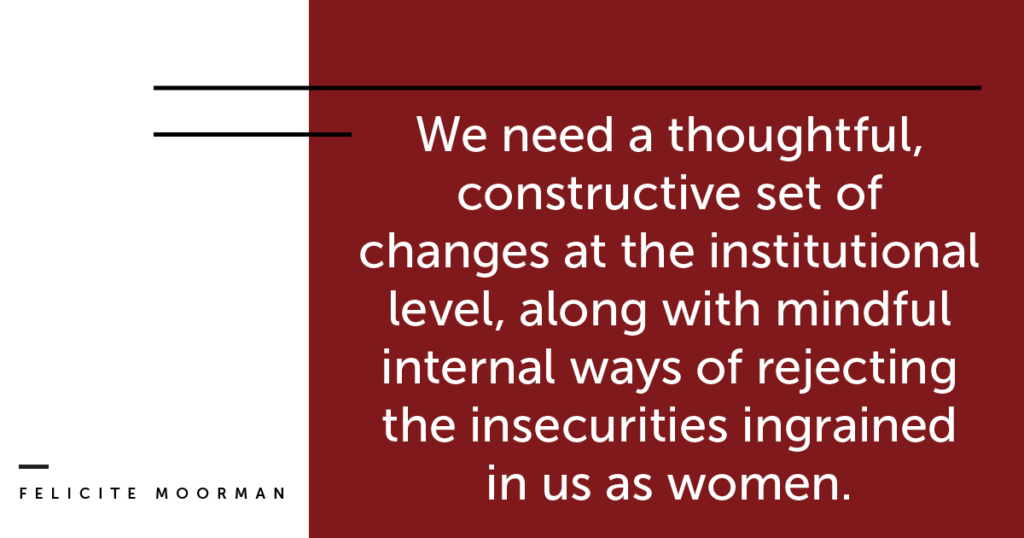A Hewlett Packard internal report has shown that men will apply to a position with just 60% of the requirements and qualifications, while women typically wait until they meet 100%. This creates a gender disparity when individuals begin to climb the corporate ranks.
You don’t need me to tell you this, but there isn’t an intrinsic lack of ambition in women. A variety of social factors contribute to this inequality and hesitation with regards to applying for jobs. Women face more social repercussions when negotiating their raises, often have to consider a company’s policies for working mothers and maternity leave and statistics show that employers expect male candidates to outperform women before considering an applicant’s qualifications, not to mention the variety of workplace power dynamics and microaggressions embedded in the experience of being a female professional.

Even before arriving at these institutional roadblocks, many women must face the limitations they impose upon themselves. Many of us grow up in social environments where we develop internalized misogyny, self-defeating thoughts, guilt for having ambition, and an entirely different understanding of ego than the men in our culture.
For hundreds of years, self-sufficiency wasn’t considered a quality that women could possess, and we still see the ramifications of this mentality today through the perpetuation of gender roles in and outside of the workplace and in the behaviors that we, as a society, choose to reward or punish in women. To counteract this corporate gender paradigm, we need a thoughtful, constructive set of changes at the institutional level, along with mindful internal ways of rejecting the insecurities ingrained in us as women.
In Linda Nochlin’s famed 1971 essay, “Why Have There Been No Great Women Artists?” Nochlin interrogates the issue of seeking out some inherent inadequacy in women that stunts their professional growth, whether that be talent, ambition, or genius, and instead frames the female experience within a sociocultural context, “by stressing the institutional, rather than the individual, or private preconditions for achievement or lack of it (…)”
Recognition drives us to succeed. We respond to the conditions of our workplace culture – many of which need to change at a socio-structural level not to accommodate women, but to enable all genders to reach their full potential. The Harvard Business Review notes the importance of recognition as a “motivational engine” that many women don’t receive on par with men in their early development.
With this, I stress the importance of having high-powered female colleagues, role models, and mentors. Leadership visibility is essential, as is representation. The interweaving of workplace changes that enable women to succeed, combined with the psychosocial push that “lean-in” feminism encourages, is crucial to seeing this cultural paradigm shift. Applying early and often – putting yourself out there and chasing your ambition exactly as your male colleagues are goes beyond serving your individual goals. It paves the way for the next generation of female professionals to change corporate culture and our culture at large.

